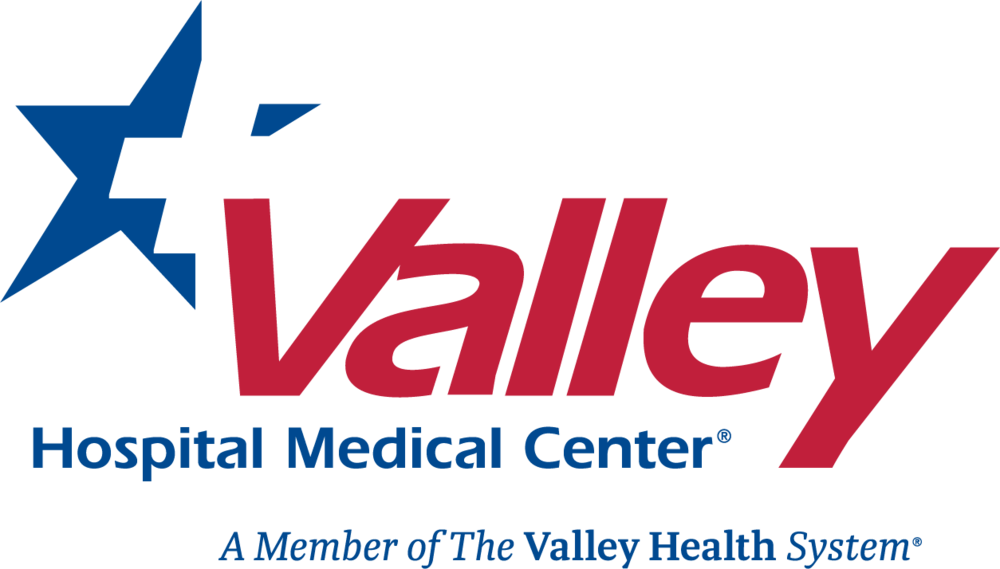Valley Hospital Earns Certification as Advanced Comprehensive Stroke Center

Valley Hospital has earned certification as an Advanced Comprehensive Stroke Center (CSC) from The Joint Commission and the American Heart Association®/American Stroke Association®.
 Valley Hospital is the only comprehensive stroke hospital in Nevada to achieve the comprehensive stroke designation and have a neurology residency program approved by the Accreditation Council for Graduate Medical Education (ACGME). It is one of only three CSCs in Nevada and one of approximately 208 CSCs in the United States, according to the American Stroke Association. Valley Hospital treats over 800 stroke patients each year.
Valley Hospital is the only comprehensive stroke hospital in Nevada to achieve the comprehensive stroke designation and have a neurology residency program approved by the Accreditation Council for Graduate Medical Education (ACGME). It is one of only three CSCs in Nevada and one of approximately 208 CSCs in the United States, according to the American Stroke Association. Valley Hospital treats over 800 stroke patients each year.
Learn more about Stroke Services at Valley Hospital Medical Center
“This is an incredible team effort that has taken years to successfully develop through the leadership and teamwork of our emergency, nursing, radiology and surgery departments, our neurology residency program and our medical leadership,” said Claude Wise, CEO/Managing Director of Valley Hospital. “From the ongoing education and training to the investment in diagnostic imaging equipment that allows our team to treat patients with complex stroke conditions, this is a hard-earned, well-deserved and highly sought after certification. I’m proud of our team’s commitment and hard work to provide our community with this expertise.”
“Comprehensive Stroke is the highest designation that a stroke center can receive,” explained Paul Janda, DO, JD, President of Las Vegas Neurology Center and Program Director for Valley Hospital’s Neurology residency program. “As a Comprehensive Stroke Center, we are able to provide a full spectrum of neurological and neurosurgical services to treat complex stroke patients. CSCs have been shown to improve clinical outcomes and reduce disparities in ischemic stroke patients. It is also believed that CSCs improve outcomes in hemorrhagic stroke.”
What is a Comprehensive Stroke Center?
As a Comprehensive Stroke Center, Valley Hospital is part of a select group of hospital providers focused on complex stroke care, providing an advanced infrastructure, technology, resources, staff and training to diagnose and treat people with the most complex types of stroke.
To achieve accreditation, Valley Hospital underwent a rigorous on-site review to ensure its continued compliance with the Comprehensive Stroke Center standards and requirements including:
- Expertise to treat all stroke patients and their complications
- 24/7 neurosurgical availability to perform immediate, complex neurovascular procedures
- 24/7 availability of neurology consultations
- Advanced imaging capabilities
- An intensive care unit that specializes in the care of complex stroke patients
The achievement as a Comprehensive Stroke Center follows a dedicated plan to improve stroke outcomes in the lives of southern Nevada residents and tourists, says Jeff Davidson, MD, FACEP, Medical Director of the Emergency Department at Valley Hospital, who has been involved with the stroke program since its conception 16 years ago. Dr. Davidson also had the distinction of delivering the very first thrombolytic (clot-dissolving) medication to a stroke patient that officially started the program.
“Valley Hospital was accredited as a Primary Stroke Center in April 2007,” says Dr. Davidson. “Since day one, the entire team has worked tirelessly to educate staff, physicians, and emergency medical services on the rapid recognition of symptoms, diagnosis, intervention and treatment of patients with ischemic, hemorrhagic and mini-strokes, known as TIAs. This also includes a significant investment of time and resources to educate community members on the signs and symptoms of stroke so they don’t delay seeking emergency care.”
In tandem with the accreditation as a Primary Stroke Center was the development of a Neurology residency program to train physicians in neurology and increase the number of neurologists serving southern Nevada. The program began in 2007 and is led by Dr. Janda. Today, the Neurology residency is accredited by ACGME with a 100 percent neurology medical board pass rate and a 100 percent fellowship acceptance rate. The neurology residents are available for 24/7 neurology consults at the hospital with support from their attending physicians and Dr. Janda.
To attain Comprehensive Stroke certification also requires the ability to successfully perform advanced neuro-interventional procedures. Under the medical leadership of Raj Agrawal, MD, Interventional Radiologist with Desert Radiology, hundreds of neuro-interventional procedures are performed each year, including endovascular treatments such as coiling for brain aneurysms, embolization of arteriovenous malformations (AVMs) and stenting of carotid artery occlusions.
Of significant importance is the ability to perform mechanical thrombectomies, explained Dr. Agrawal. “When one of the major arteries of the brain is blocked, this is considered a large vessel occlusion (LVO) stroke. This type of stroke tends to be more severe, and mechanical thrombectomy is strongly recommended.”
The procedure involves making a small incision, usually in the groin, and threading a catheter with tiny instruments to the site of the blockage to retrieve the clot. “Having access to this advanced care can support better outcomes and recoveries, with less risk of serious disabilities like paralysis, and greater return to normal functioning,” he explained.
“It takes a village to develop a program of this level, and I want to thank Barbara McGuigan, RN, our Stroke Facilitator, along with Drs. Agrawal, Davidson and Janda, who were absolutely vital to achieving this certification,” said Wise. “The collective expertise of our Valley Hospital team has benefited thousands of patients over the years, and will continue to help others for years to come.”
